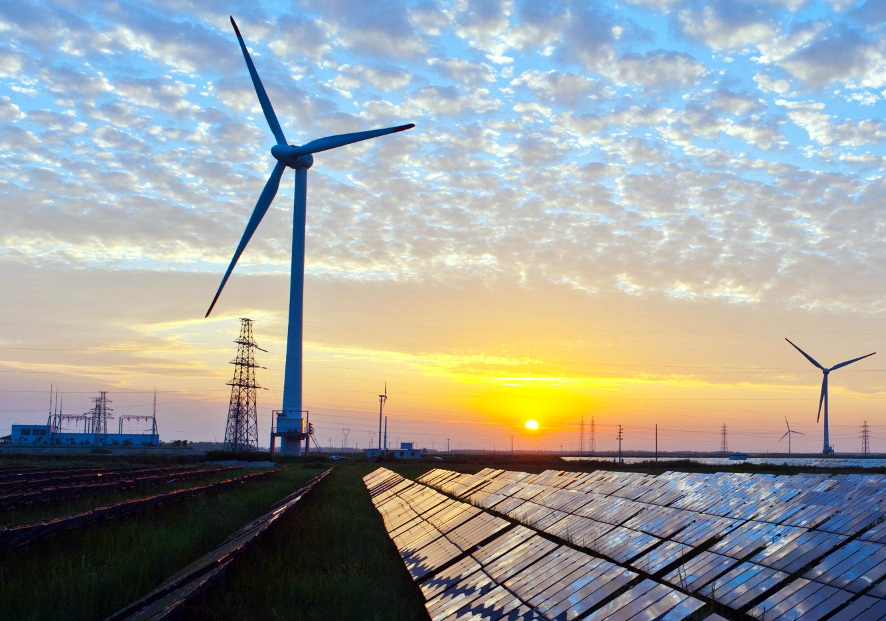We are excited to announce that Brink is now part of Africa Practice. Learn more
South Africa’s decarbonisation

At the COP 26 summit in November last year, South African President Cyril Ramaphosa announced a historic USD 8.5 billion (ZAR 130 billion) decarbonisation deal with the governments of France, the US, the UK, Germany and the EU, intended to support a just transition to a low carbon economy and a climate resilient society. The deal is a global first, and – if executed successfully – can act as a model for how other developed countries can support lower-income carbon emitters in their energy transitions.
The push for decarbonisation and the transition to renewable energy also link to South Africa’s Vision 2050: Time to Transform, a joint effort by the National Business Initiative and the World Business Council for Sustainable Development. Vision 2050 outlines several sector-focused pathways towards sustainable economic and social transformation, with the aim of achieving net zero emissions by 2050.
Crucial deal specifics are yet to be determined: types of financing, community compensation; and funding for the heavily-indebted national energy provider, Eskom. Establishing the finer points of the Just Transition deal is the responsibility of Daniel Mminele, head of the Presidential Climate Finance Task Team, who is leading the talks with donors.
Defining a “just” transition
While all eyes have understandably been on the exciting renewable energy options to facilitate the transition, the “just” element is a key component of the landmark deal. According to the presidency, the decarbonisation process “should be implemented in a manner that promotes and sustains employment, livelihoods and economic inclusion for historically marginalised communities and sectors of society.”
The biggest concern around South Africa’s decarbonisation and transition to renewable energy is that of potential job losses. This includes mine workers, workers employed directly by Eskom, as well as those indirect jobs generated in communities whose economies revolve around the presence of a mine or power station. As of 2018, South Africa’s coal mining industry employed over 86,900 people.
The implementation of the deal may thus generate significant opposition by trade unions and certain political parties, if the potential employment and training opportunities fail to materialise. Indeed, with a Q1 2022 unemployment rate of 35.3% (closer to 46.2% when using the expanded unemployment rate definition), the country cannot afford any job losses associated with the transition. These labour concerns were acknowledged in the formation of the Just Transition deal, which highlights that support is required for workers and communities affected by the transition away from coal, through the creation of quality jobs in the renewable energy sector.
Another key component of the Just Transition deal is that South Africa’s economic realities are clearly prioritised, as opposed to having external, donor-imposed priorities.
Establishing a global blueprint
Work towards these decarbonisation deals come at a turbulent time for the global economy, with particular attention to the Russia/Ukraine crisis, which has boosted the appeal of cheap coal. With just over five months to go until COP 27 in Egypt, the South Africa decarbonisation deal progress will be highly indicative of the prospects of financing and implementation, beyond the local context.
While South Africa’s deal was the first of its kind, global talks are also underway between international donors and Indonesia, India and Vietnam for a similar-style agreement. Although it is still early days, a key lesson from the South Africa example is for deals to be attuned to the local contexts, and for related industries to be built-up to compensate for the economic and labour costs of the transition.
About the Author
Hannah Atkins is an associate consultant at Africa Practice. She works with various clients across sub-Saharan Africa, conducting research, providing analysis and insights, and supporting stakeholder engagements. She can be contacted at [email protected].
Proud to be BCorp. We are part of the global movement for an inclusive, equitable, and regenerative economic system. Learn more


